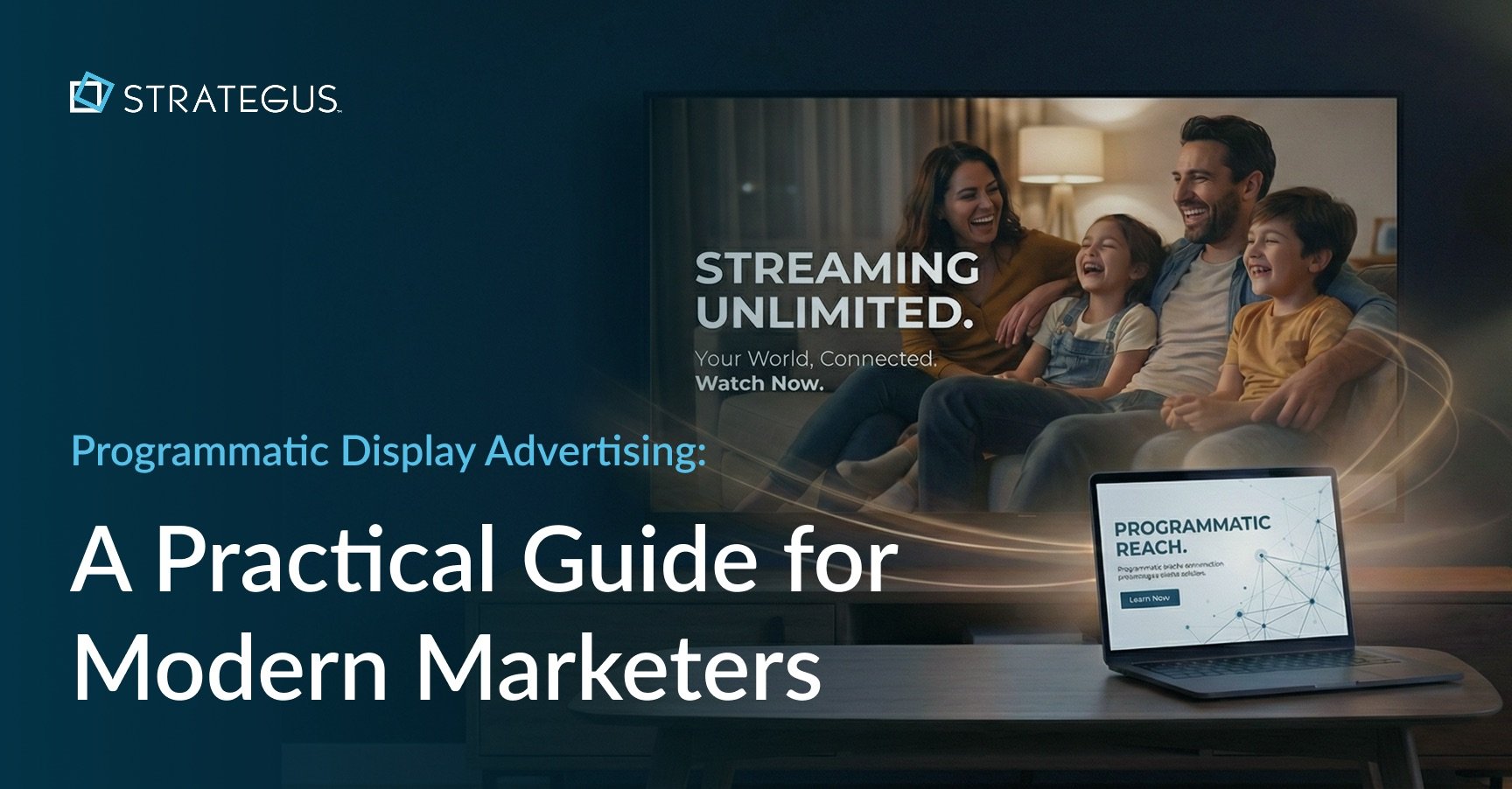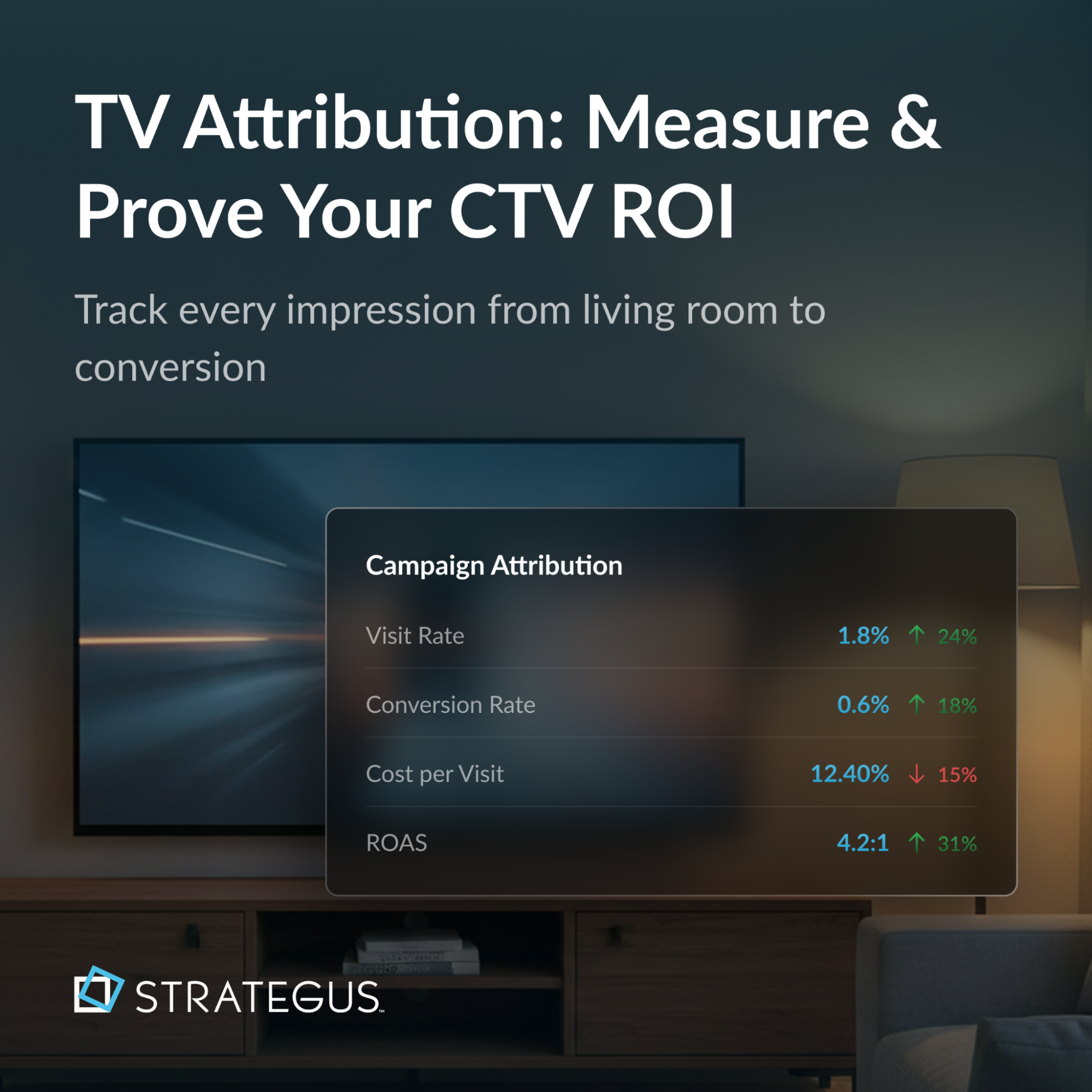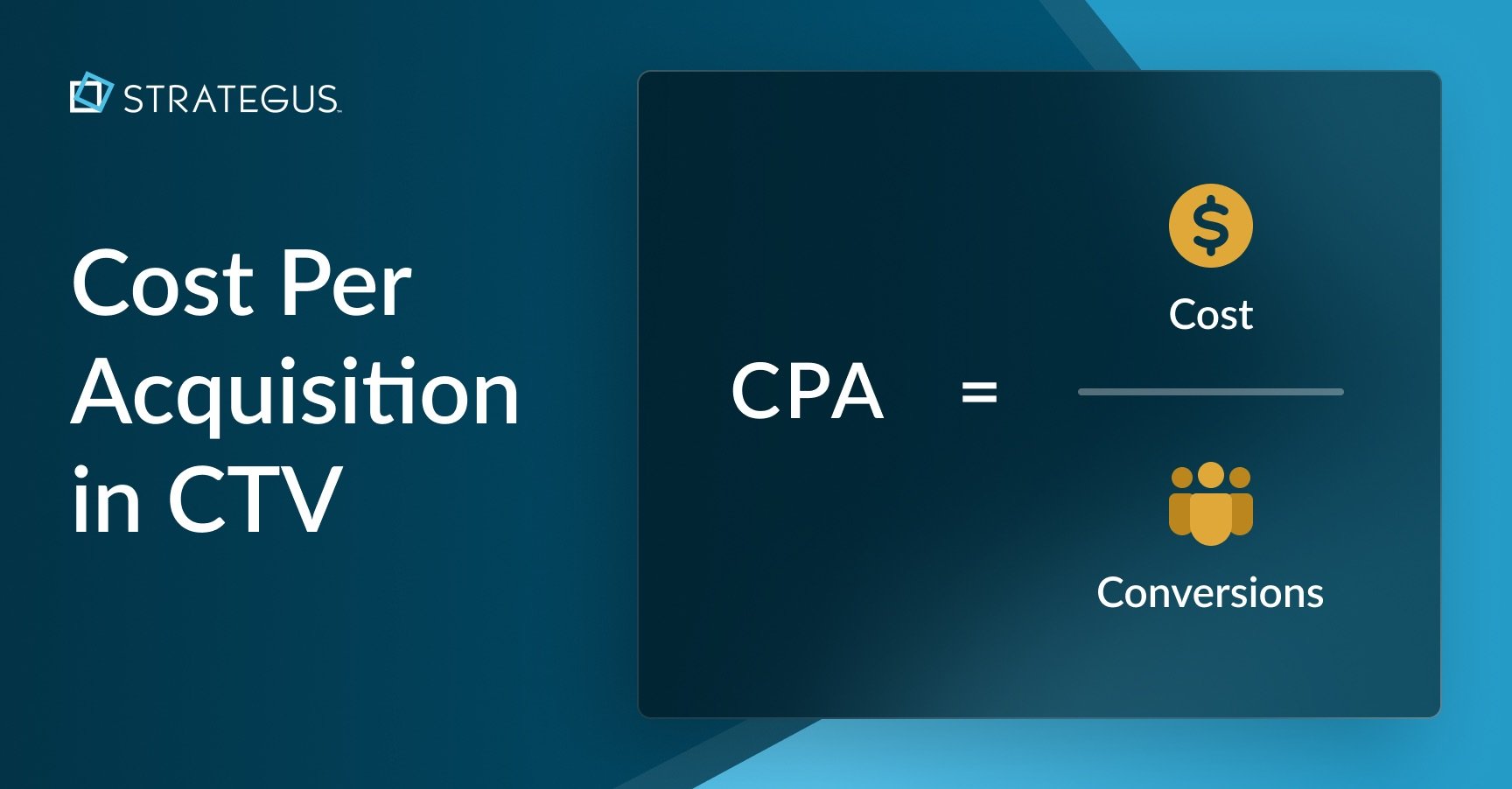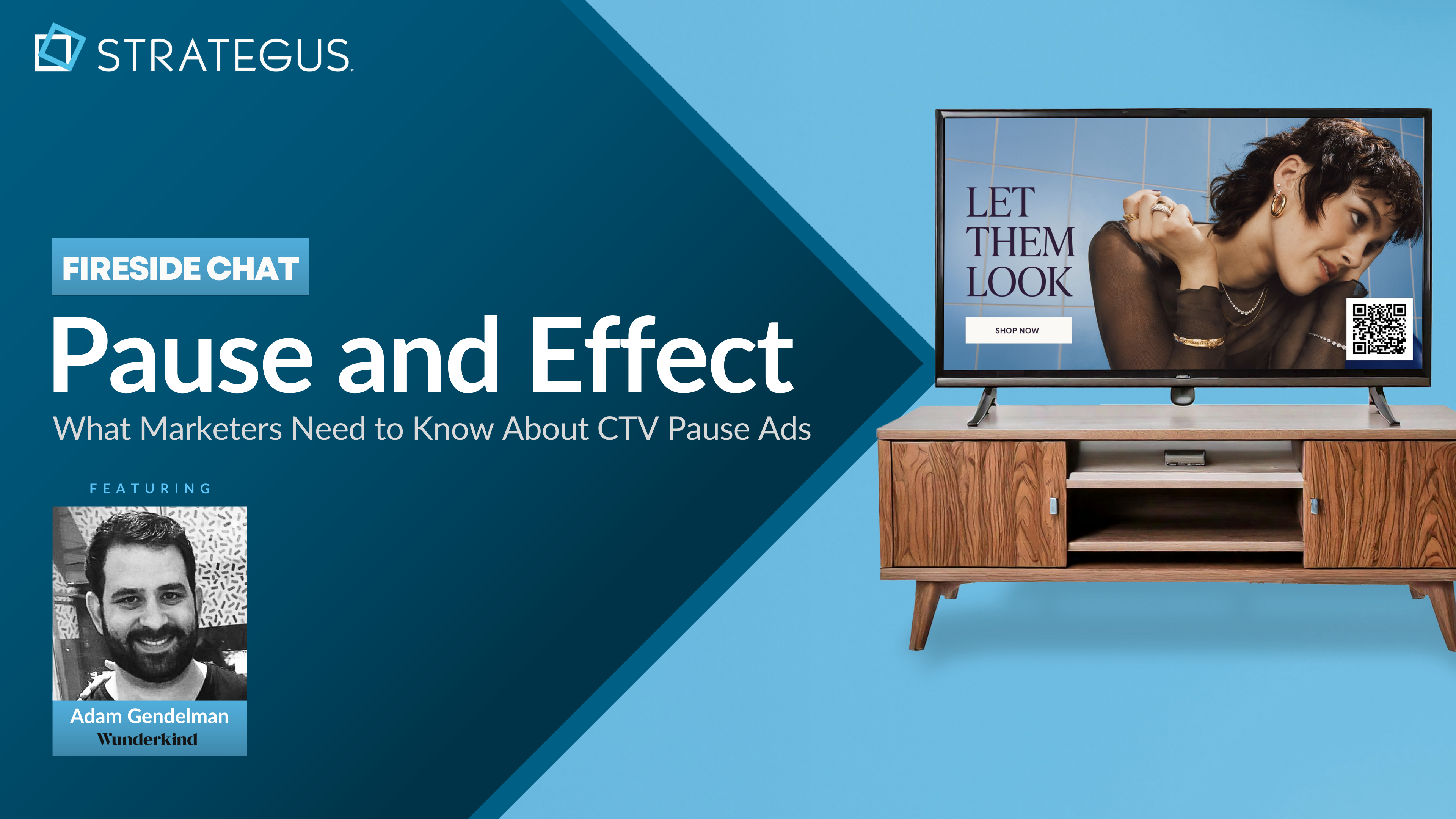- Home
- Strategus Blog
- How Attribution Tracking and Website Visitor Tracking Works
How Attribution Tracking and Website Visitor Tracking Works
 Andy Dixon
Andy Dixon
5 minutes read
The more you can track, the better you can understand how your audiences are engaging with your marketing campaigns. But being able to track everything can still be a double-edged sword.
If you have all of the data at your fingertips, it's easy for your team to get distracted by vanity statistics or statistics with relatively little weight. It's also easy to bog your team down with analytics that don't give them the clear insight they need to make significant improvements. In fact, a recent article from Aberdeen Strategy Group explores how marketers may have too much data now:
...It's no surprise that 53% of marketers say that "you can never have too much data." The confidence that so many marketers have in their ability to handle big data is admirable. And yet, studies show that data complexity ranks as the biggest marketing challenge today.
So it's important to choose the right analytics to focus on and use to make revisions to your ad campaigns. We recommend focusing on advertising attribution — that is, analytics that show which ads or ad components lead to customer engagement (like visiting a brick-and-mortar location or making a purchase).
Our Attribution Suite gives you clear insight into the steps your target market takes after viewing an OTT or CTV ad. In this article, we'll explore the fundamentals of website visitor tracking and how it can give you clear insights into the success or failure of your campaigns that you need.
What is website visitor tracking?
Website visitor tracking analyzes the movement and actions of visitors across your website, your marketing materials (like OTT/CTV ads and email newsletters), and other platforms so you can better analyze their specific behaviors and what triggers those behaviors. There are two main types of tracking you can use to gain insights into your customers' behaviors:
1. General Website Browsing
This is what many consumers picture when it comes to website visitor tracking. You can analyze how much time visitors tend to spend on a page on average, identify your top landing pages, see your clickthrough rate and bounce rate for different pages, and more. This information gives you a holistic look at the health and performance of your online pages.
2. Visitor Tracking
This type of tracking gives you a far more detailed look. You can filter the information to see how different demographic groups interact with your pages, blogs, and marketing assets. This lets you understand how different shoppers interact with materials differently so you can match their personalized experiences to the ads and landing pages they're most responsive to.
Website visitor tracking and attribution
In our attribution tracking platform, we track eight types of attributions. One of those is post-view website visit attribution. This tracks whether or not audiences who viewed your ad then travel to your website. It can measure whether the visit was a direct result of viewing the ad (such as clicking to your store through the ad) or if the ad was a contributing factor to a later visit. Robust website visitor tracking and attribution can also track how many ad views were necessary to cause a website visit.
This is crucial because you can start to gauge which of your ads actually lead to a website visit — and which ads do the best job for different target markets. You can measure the direct impact of exposing a viewer to an ad on an OTT/CTV platform, which also lets you determine if the cost of the ad is worth it — that is, if it improves your ROAS.
By analyzing shopper behavior through post-view website visit attribution, you can continually revise your ad campaigns so you're only exposing viewers to ads that garner high responsiveness from their demographic group. This increases the likelihood that they'll click through to your site and begin the process of making a purchase.
Why Does Post-View Website Visit Attribution Matter?
If your team is already busy with other analytics and reports, adding an entirely new type of tracking and data to their workflow can be challenging. But attribution analytics are some of the most powerful for refining your advertising campaigns and strategies. You gain immediate access to these three benefits:
1. Improve your ads
Once you know which ads convert the most viewers, you can identify which elements are making them so successful. Then, you can apply those specific formats, design choices, or wording to new ads to test them and make your current and future ads stronger.
2. Improve your buyer personas
However, it may not be the ads themselves that need to be improved. Instead, they might just be reaching the wrong group of viewers. By analyzing your website visitor metrics, you can rearrange who is exposed to which ads to find the best audience-ad pairing. This gives you more insight into your audience along the way so you can make your buyer personas more detailed.
3. Improve your customers' journey
However, it may not be the ads themselves that need to be improved. Instead, they might just be reaching the wrong group of viewers. By analyzing your website visitor metrics, you can rearrange who is exposed to which ads to find the best audience-ad pairing. This gives you more insight into your audience along the way so you can make your buyer personas more detailed.
Partner With Strategus for Website Visitor Tracking and Attribution
Modern advertisers have access to more data than they can reasonably process, so it's important to select the metrics and insights that you can use to make the biggest improvements.
Attribution data, especially post-view website tracking, lets you directly see the impact of your ads so you can make clear, measurable changes. Talk to our team today to learn more about how our Attribution Suite works, or browse our resources for more information about attribution.

Andy Dixon is a seasoned Content Writing Specialist at Strategus, renowned for his expertise in creating engaging and impactful digital content. With over a decade of experience in content creation, Andy has honed his skills in a variety of niches, ranging from technology and marketing to education.
Strategus is a managed services connected TV(CTV) advertising agency with over 60,000+ campaigns delivered. Find out how our experts can extend your team and drive the result that matter most.
Talk to an Expert
Seeking a Custom CTV Strategy That Delivers?
What to read next

Programmatic Display Advertising: A Practical Guide for Modern Marketers
Programmatic display advertising is a staple for most marketers. It's familiar, widely used, and often the default choice in digital campaigns. But...
11 minutes read

TV Attribution Explained: How CTV Delivers the Proof Traditional TV Never Could
Traditional TV advertising was a black box. You’d run a campaign, the media plan would look solid, and then… you’d wait. Maybe site traffic ticked...
13 minutes read

What Is Cost Per Acquisition and How Does CTV Fit In?
Marketers have been able to track the cost per acquisition (CPA) across digital channels using tracking pixels and attribution models to determine...
9 minutes read

What Is an Ad Exchange? How Programmatic CTV Buying Works
Ad exchanges power most of the ads you see on connected TV, but understanding how they work can feel like deciphering a secret code. SSPs, DSPs, data...
12 minutes read















